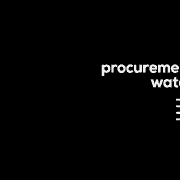|
Getting your Trinity Audio player ready...
|
Kenneth Brown has been announced as the new chief procurement officer by Finance Minister Pravin Gordhan during his budget speech on Wednesday 28 February in Parliament. Brown is currently Treasury's deputy director-general.
Corruption Watch welcomes this move, as 22% of the more that 1 300 cases of corruption reported to the organisation by the public in 2012 expose corruption in procurement. Local government is the sphere most affected by corruption, particularly in the awarding of tender contracts.
It is encouraging to hear the minister acknowledge that the current public procurement system is fragmented and vulnerable to exploitation.
“The minister must take the public into his confidence and tell us more about how this chief procurement office will function. We need to know how it will address procurement irregularities at municipal level as well as fronting, bribery and collusion,” said Bongi Mlangeni deputy executive director of Corruption Watch.
The announcement of Brown's appointment comes a year after Gordhan first raised as a flaw within government administration the absence of a centralised system for procuring services by departments. He has also been instrumental in the intervention by Treasury in Limpopo, which was put under national administration late in 2011.
Procurement, which falls under the supply chain management domain of government, has been a headache for President Jacob Zuma’s administration for a while. It has been singled out as the centre of corruption and fraud in government by Auditor General Terence Nombembe, who recently released a report detailing how eight government departments spent R24-billion on consultants in the period between 2008 and 2011.
Nombembe found that in all the cases, not all conditions of the Public Finance Management Act (PFMA) were followed in procuring tenders or services of these consultants.
Currently, each department uses its discretion as far as acquiring services from the private sector that are aligned to its mandate, to help it achieve service delivery goals.
However, the tender system, used in departments and agencies across the three tiers of government as a means of attracting private partnerships to state projects and creating employment through service delivery projects, has been at the centre of corruption in the public service.
“There are hundreds of thousands of procurement transactions from a multitude of centres,” explained Gordhan, “there is very little visibility of all these transactions”.
The difficulty for officials, said the minister, was in optimising oversight functions over these deals to make sure they are above board. “The current system has yielded rich pickings for those who exploit it”, he said, implying that corrupt officials have been able to get away with their transgressions.
Because there are many people who have an interest in keeping the current system the way it is, he added, there has been a lot of resistance to his office’s move to centralise procurement. He conceded that reining in the multiple systems to be able to control processes under the auspices of Brown’s office will not be easy, but Gordhan emphasised that it would take efforts not only from government, but also business and South Africans at large.
In his previous budget speech, Gordhan said the renewed focus on procurement practices was one of the key objectives that his department would achieve in the last financial year. When updating Parliament on his progress at the mid-term budget review in October, he again expressed the difficulty of determining the role of the procurement officer, but assured the finance portfolio committee at the time that he would prioritise the project.
Among Brown’s first tasks will be to improve the current system of price referencing used by departments to determine the best bidder among service providers. This, said Gordhan, will help set fair value prices for certain goods and services.
“Treasury is currently scrutinising 76 business entities with contracts worth R8.4-billion which we believe have infringed the procurement rules, while Sars is currently auditing more than 300 business entities and scrutinising another 700.”
Gordhan added that the value of the contracts is estimated at over R10-billion. “So far, 216 cases have been finalised, resulting in assessments amounting to over R480-million being raised,” he said. The Financial Intelligence Centre (FIC), the compliance regulatory body for government finances, has referred over R6.5-billion for investigation linked to corrupt activities.
Expressing his support for the recent call by Public Service and Administration Minister Lindiwe Sisulu to stop public officials from doing business with government, Gordhan said he would align the PFMA, which regulates spending and accountability for government departments, with the provisions of the Public Service Act, the legislation through which Sisulu hopes to make the change.
“Special measures are being taken to oversee the accounts of what have become known as “politically exposed persons worldwide,” said Gordhan, adding that the FIC would look at ways of bringing South Africa up to the international standards of fighting corruption and money laundering.






